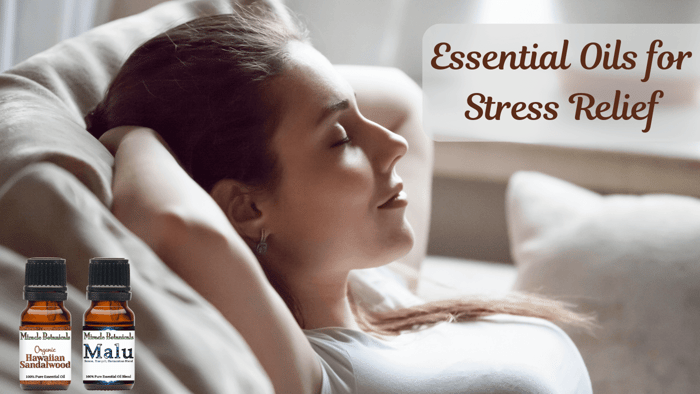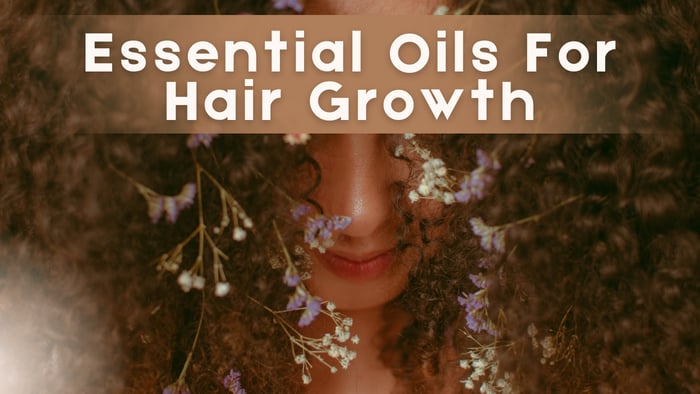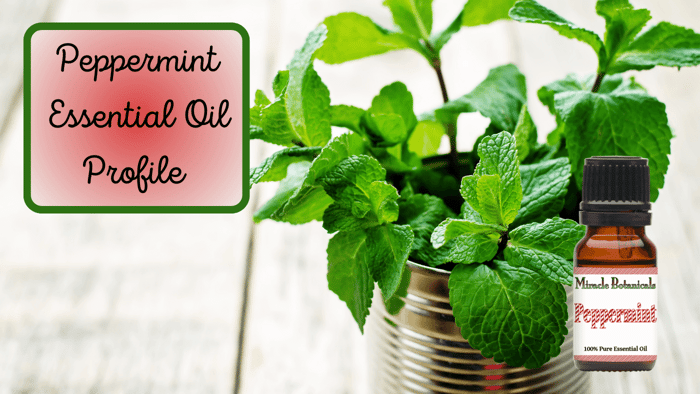If you ever wanted to know about using essential oils for stress relief, this article is for you! Aromatherapy has been used for centuries to promote mental well-being and alleviate symptoms of stress relief, anxiety, and depression. The use of essential oils, derived from plants, can have a profound impact on our emotional state and overall mental health.
The Science Behind Essential Oils for Stress Relief
Aromatherapy has been used for centuries to promote mental well-being and alleviate symptoms of stress, anxiety, and depression. The use of essential oils, derived from plants, can have a profound impact on our emotional state and overall mental health.
Definition and Brief History of Aromatherapy
Aromatherapy is a natural treatment method that uses essential oils extracted from aromatic plants. It has prevailed in different cultures around the world, such as those of the Egyptians, Greeks, Persians, and Chinese. The actual term "aromatherapy" was invented by the French chemist Rene-Maurice Gattefosse in 1935 after a burn incident, which he claimed to have treated effectively with lavender essential oil.
Scientific Explanation of How Aromatherapy Affects the Brain
- Essential oil molecules can reach the brain through inhalation or topical application, triggering responses such as increased neurogenesis, regulation of hormonal levels, and activation of different brain regions.
- Olfactory stimulation from essential oils can directly impact the limbic system, which is responsible for emotions, memory, and behavior.
- Specific essential oils, such as lavender, have been found to modulate neurotransmitter levels, including serotonin and dopamine, which play a crucial role in regulating mood.
Review of Recent Studies on Aromatherapy and Stress
- A systematic review of 12 randomized controlled trials found that aromatherapy, particularly aromatherapy massage, showed potential in relieving depressive symptoms in a wide range of subjects.
- Another study demonstrated that inhaling lavender essential oil reduced stress and improved sleep quality in patients in an intensive care unit.
- Peppermint essential oil has been shown to reduce mental fatigue and prolong cognitive tasks due to its acetylcholinesterase inhibitory and gamma-aminobutyric acid A receptor stimulating properties.
- Bergamot oil has been found to reduce central sensitization-phase-related pain and agitation behaviors in a mouse model.
These studies highlight the possibilities of essential oils on the nervous system and their potential in managing stress and related conditions. As research continues to explore the mechanisms and benefits of aromatherapy, it is becoming increasingly evident that this ancient practice holds significant value in promoting mental well-being and alleviating stress in modern times.
My Favorite Essential Oils for Stress Relief
As a long-time essential oil alchemist and the founder of Miracle Botanicals, I have my favorite essential oils for stress relief. These aren't listed in any particular order.
| Essential Oil/Blend | Key Benefits | |
|---|---|---|
| Lavender Essential Oil |
- Calming and Relaxing |
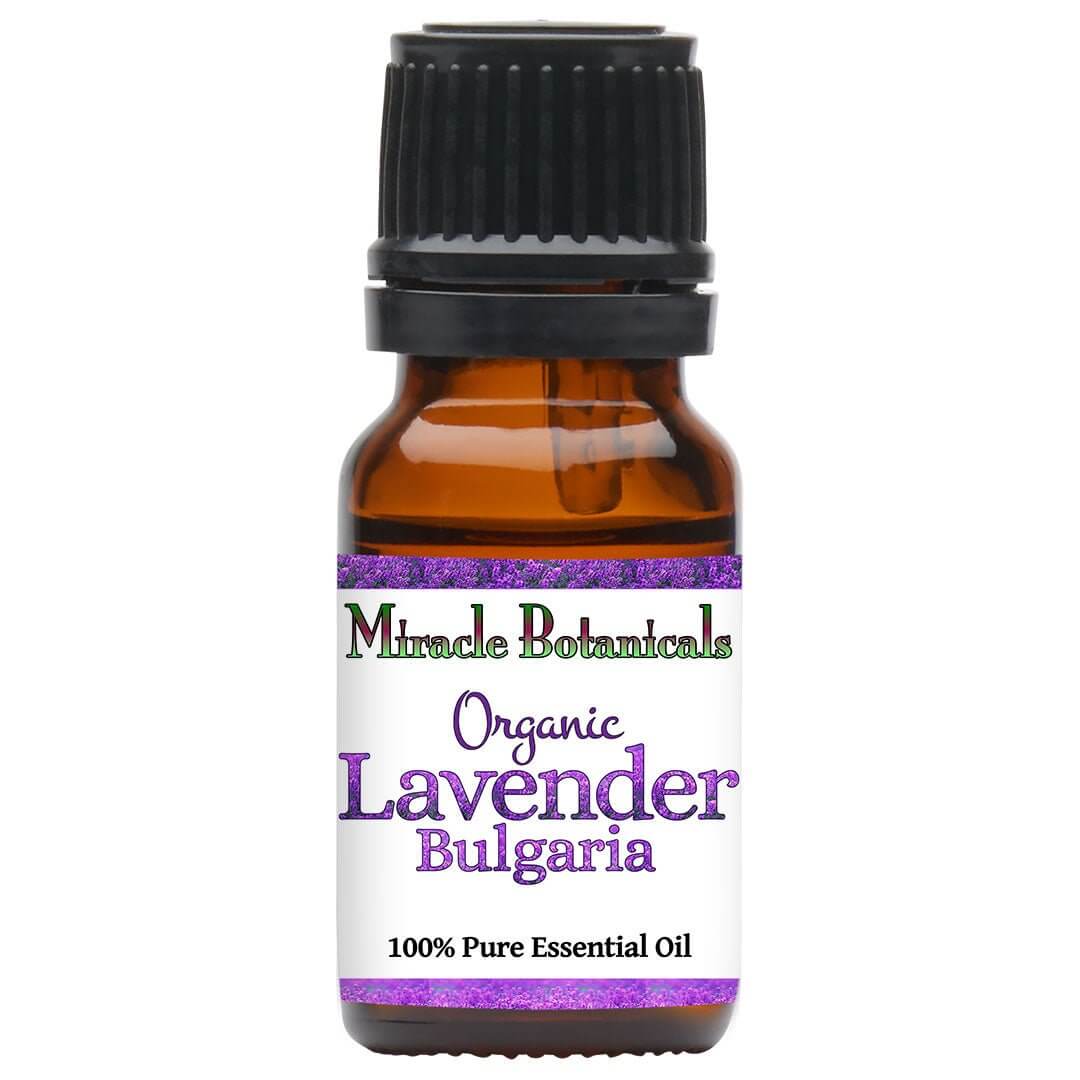 |
| Neroli Essential Oil | - Promotes relaxation and eases anxiety - Lowers blood pressure and cortisol levels - Reduces the physical effects of stress on the body * Highly Recommended by Aromatherapists for alleviating Anxiety |
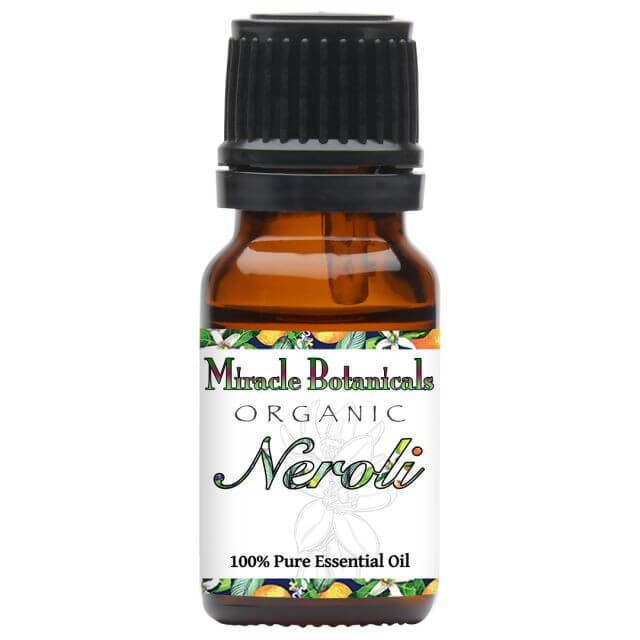 |
| Cape Chamomile Essential Oil | - Potent stress relief - Promotes relaxation and well-being - Contains elevated levels of esters, making it the most effective among chamomile varieties for reducing stress and promoting calmness * Unique, Comforting Aroma, Very Rare, Only Grows in South Africa |
 |
| Vetiver Essential Oil | - Induces relaxation and tranquility - Supports emotional balance - Enhances sleep quality - Soothes anxiety and nervousness - Protects from ticks and acts as a natural insect repellent - Contains antioxidants that support overall health * Known as The Oil of Tranquility, Gentle, Long Lasting, Heavy. Traditionally applied to the soles of feet to help children calm down or sleep. |
 |
| Frankincense Essential Oil | - Eases depression - Promotes emotional well-being - Grounding aroma that centers the mind - Alleviates anxiety and stress - Used in meditation and spiritual practices to encourage peace and inner harmony * Light and easy to use, the most researched variety of frankincense |
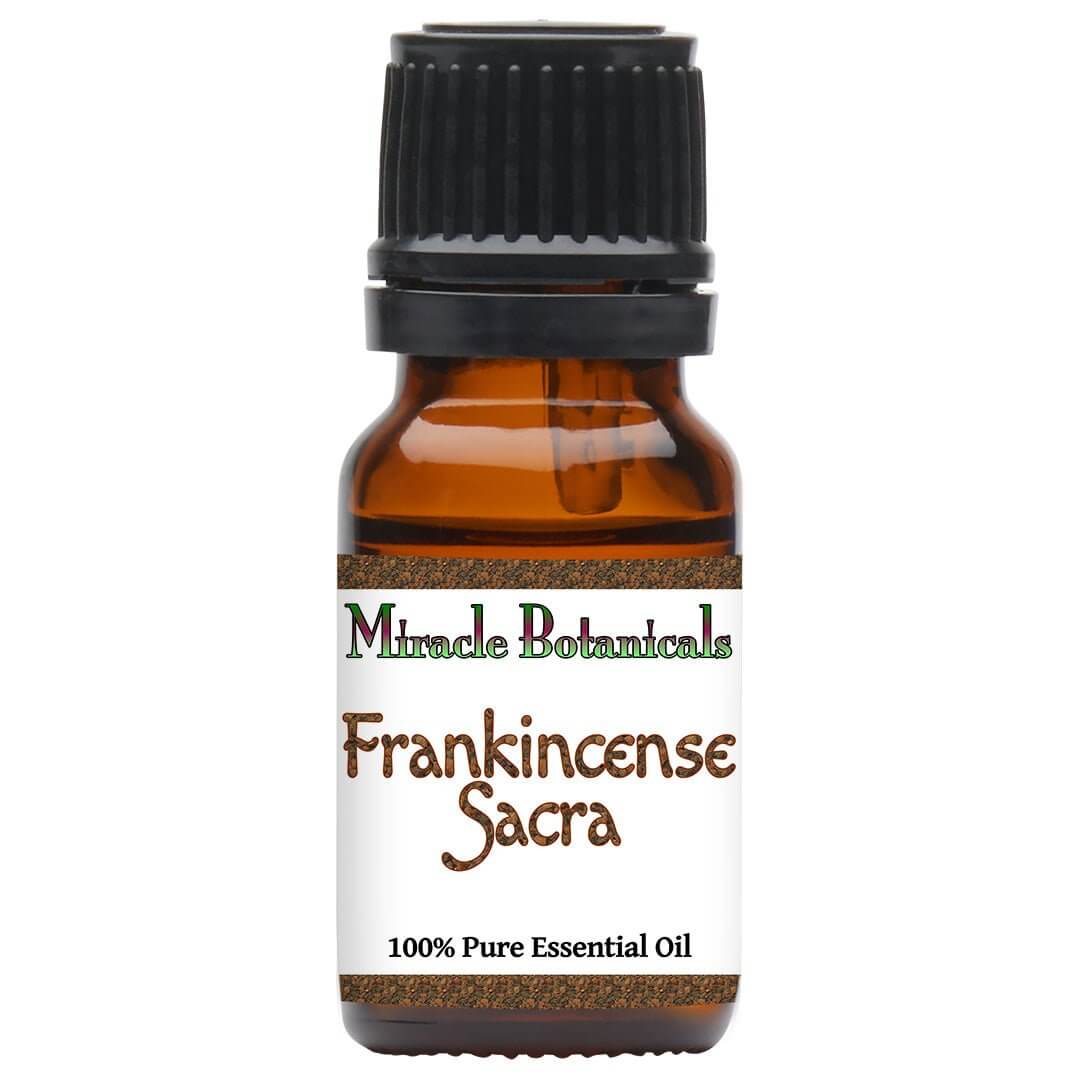 |
| Hawaiian Sandalwood | - Exceptionally sweet and rich aroma - Calming and stress-alleviating properties - Promotes relaxation and grounding - Often used in meditation and aromatherapy to reduce stress * Highest concentration of santalols, a highly relaxing chemical. Oil is rich and deep. |
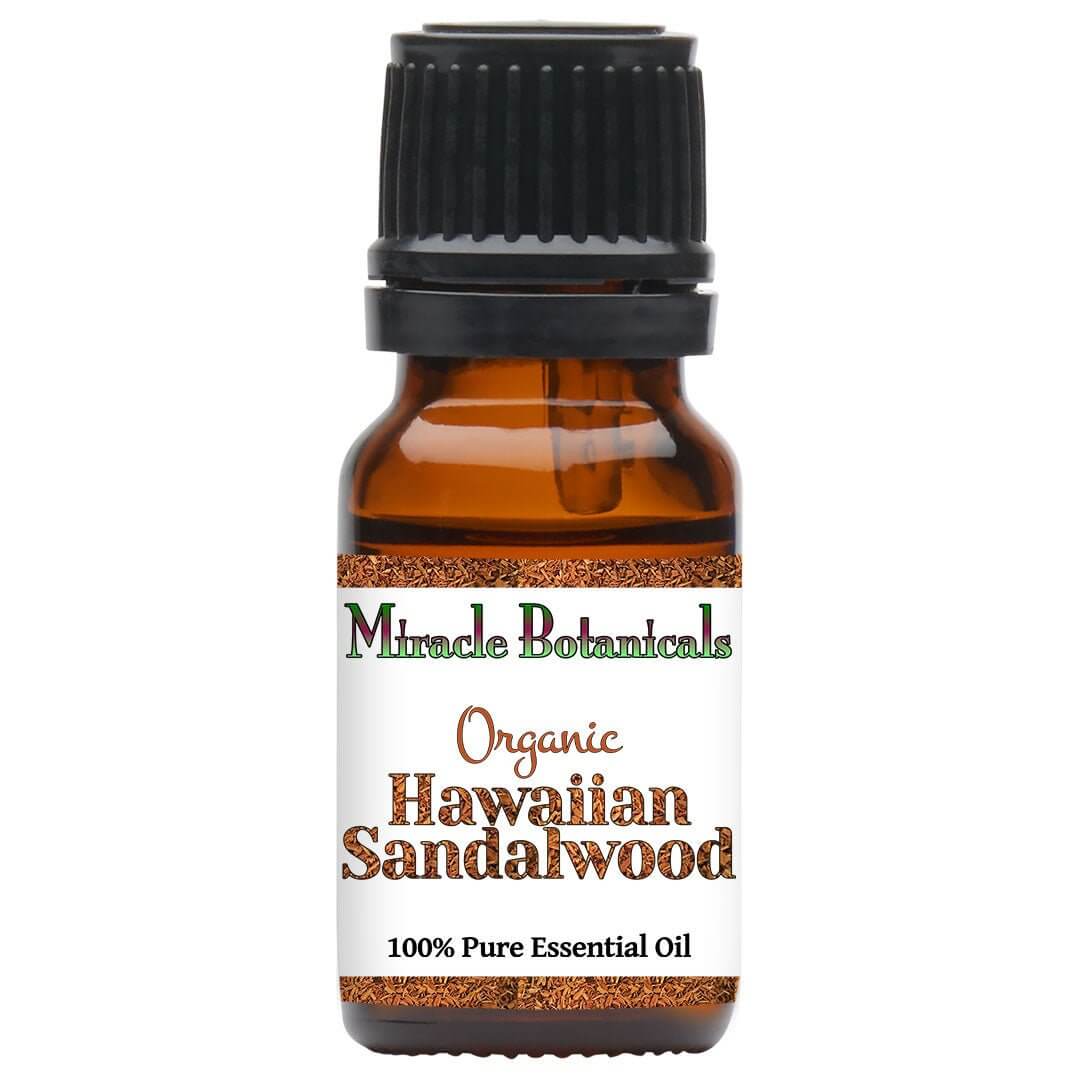 |
| Malu Essential Oil Blend |
- Induces serenity and promotes relaxation |
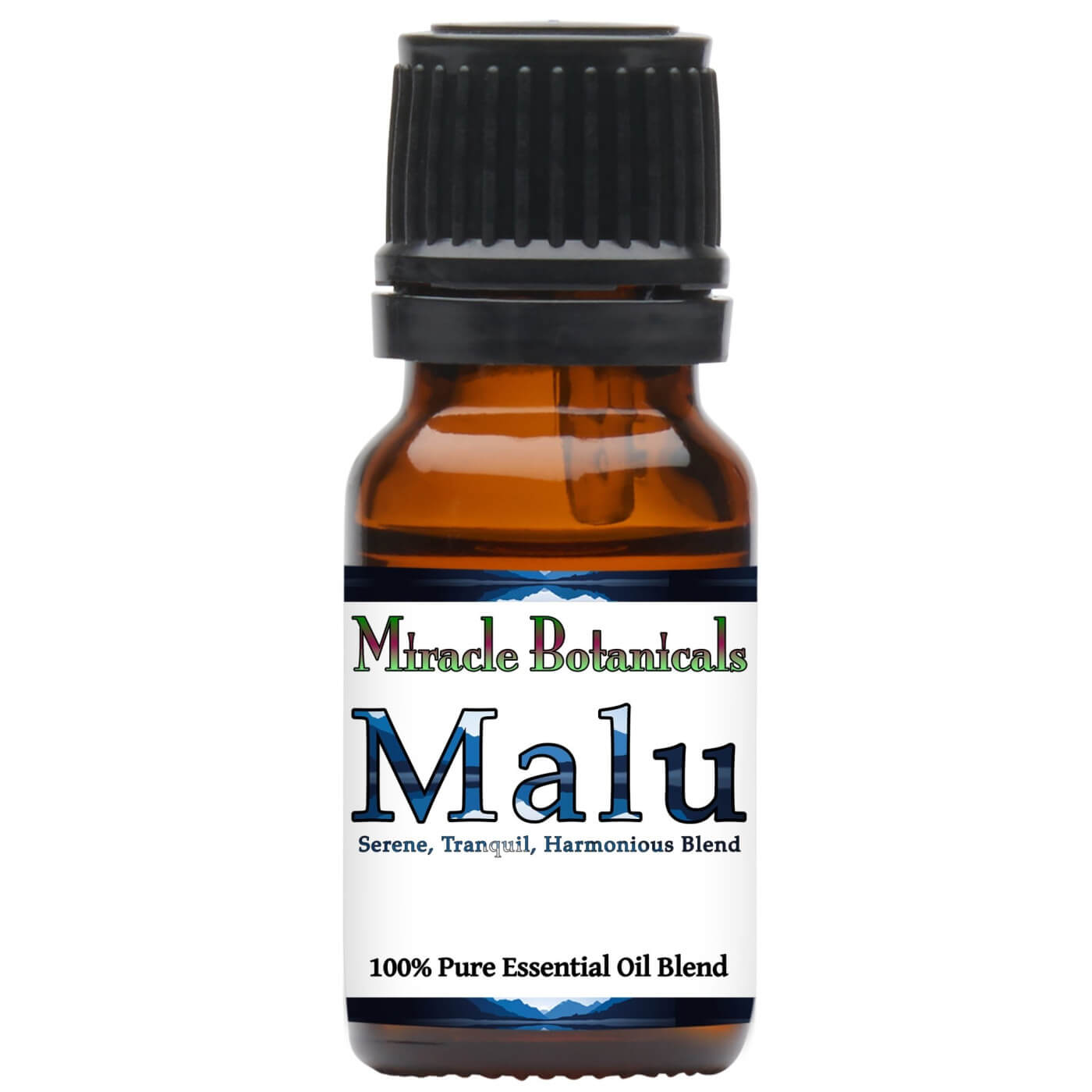 |
| Earth Essential Oil Blend | - Encourages grounding and clears the mind - Fosters a sense of stability - Earthy aroma that creates a calming atmosphere - Reduces stress and promotes emotional balance * A simple blend of Sandalwood, Cedarwood, and Vetiver, this blend is perfect for quieting mental chatter and encouraging a grounded and calm vibe |
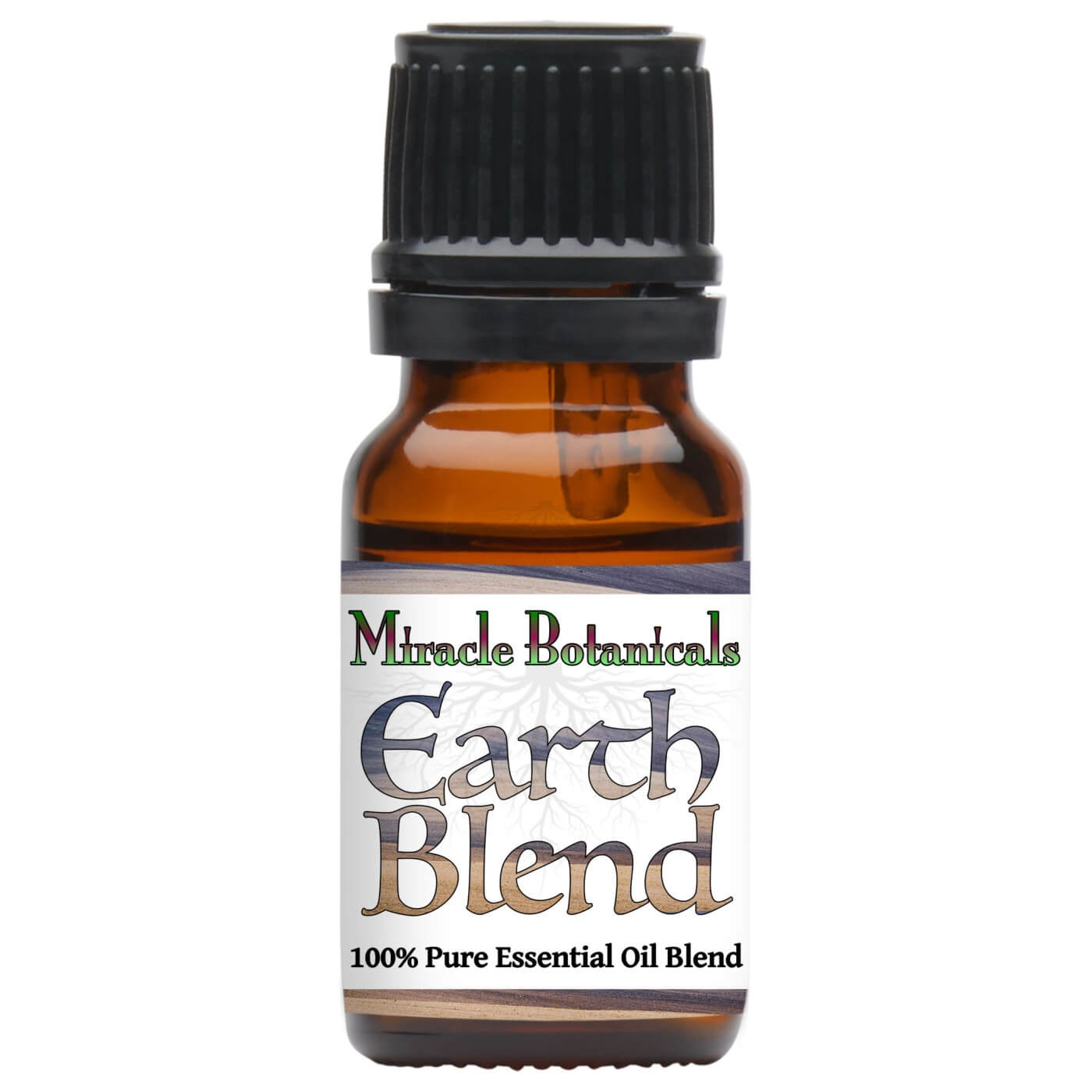 |
| Sleepy Essential Oil Blend | - Promotes deep relaxation and restful sleep - Contains a blend of calming essential oils and a gentle aroma - Helps to alleviate stress and anxiety - Ideal for use before bedtime * My sweeter and lighter essential oil blend for sleep. Ideal for children and those who prefer a sweeter aroma |
 |
| Sweet Dreams Essential Oil Blend | - Encourages a peaceful and restful sleep - Contains a more pungent and potent blend of essential oils - Helps to calm the mind and body - Reduces nighttime anxiety and promotes relaxation * This is my most potent sleep medicine. Pungent yet pleasant and slightly sweet. Apply this to the soles of your feet if you don't like the smell. The word is that "IT WORKS" |
 |
Integrating Essential Oils into Your Daily Stress Management Routine
Incorporating essential oils for stress relief into your daily stress management routine can be a simple yet effective way to promote relaxation and reduce anxiety. Here are some practical ways to make aromatherapy a regular part of your life:
Creating a relaxing atmosphere at home or office
Diffusing essential oils in your living space or work environment can help create a calming ambiance. Add a few drops of your preferred stress-relieving essential oil, such as lavender or bergamot, to a diffuser and let the aroma fill the room. You can also create a DIY room spray by mixing essential oils with water in a spray bottle and spritzing it around your space.
Incorporating aromatherapy into meditation or yoga
Enhance your meditation or yoga practice by using essential oils. Apply a diluted blend of stress-reducing oils, like frankincense or sandalwood, to your pulse points before starting your session. Alternatively, diffuse these oils in the room where you meditate or practice yoga to deepen your relaxation and focus.
Bedtime aromatherapy for a better night's sleep
These methods can help incorporate essential oils into your nightly routine, promoting a restful and rejuvenating sleep.
| Method | Description |
|---|---|
| Diffusion | Use an essential oil diffuser to disperse the oils into the air. We Recommend Waterless Diffusers. Add a few drops of your chosen essential oil to the water in the diffuser. Run the diffuser in your bedroom for 30 minutes before going to sleep to create a calming atmosphere. |
| Topical Application | Dilute essential oils with a carrier oil (like Hawaiian Kukui Nut or Hawaiian Macadamia Nut) and apply to pulse points such as the wrists, temples, neck, and soles of the feet. The oils can be absorbed through the skin and provide a calming effect to help you fall asleep. |
| Aromatherapy Bath | Add a few drops of essential oil to an ounce of vodka, milk, or a handful of good crystal salt, and then add to a warm bath. The heat will help to diffuse the oil, and the combination of warm water and soothing aroma can help relax your muscles and mind, preparing you for a good night's sleep. |
| Pillow Spray | Create a pillow spray by mixing essential oils with water and a small amount of witch hazel in a spray bottle. Lightly spray your pillow and bedding with the mixture before going to bed. The aroma will help you relax and fall asleep more easily. |
| Inhalation | Place a few drops of essential oil on a tissue or cotton ball and keep it near your pillow. Alternatively, you can add a few drops to a bowl of hot water and inhale the steam. This method can help clear your mind and promote relaxation. |
| Massage | Combine essential oils with a carrier oil and use the mixture for a relaxing massage before bed. Focus on areas where you hold tension, such as your shoulders, neck, and back. The combination of touch and aromas can help reduce stress and promote sleep. |
| Bedtime Routine | Incorporate essential oils into your nightly routine. For example, you can add essential oils to lotions, oils, or balms and apply after your evening shower (I use our Rejuvenating Face & Body Butter), or add a few drops of essential oil to your skincare products. Consistent use can help signal your unconscious mind that it's time to wind down and prepare for sleep. |
| Room Sprays | Spray a mixture of essential oils and water around your bedroom to create a calming atmosphere conducive to sleep. |
| Compress | Soak a cloth in a bowl of warm water mixed with a few drops of essential oil. Wring out the cloth and place it on your forehead or chest while lying down. The heat and aroma can help relax your body and mind, making it easier to drift off to sleep. |
| Essential Oil Jewelry | Use essential oil jewelry such as diffuser necklaces or bracelets. These pieces have absorbent materials that hold the essential oils and release their scent gradually throughout the night, providing a continuous calming effect. |
| Bedding Additives | Add a few drops of essential oil to unscented laundry detergent or dryer balls when washing your sheets and pillowcases. This will help infuse your bedding with a calming scent, creating a more restful sleep environment. |
By making aromatherapy a consistent part of your stress management routine, you can experience the calming and uplifting benefits of essential oils for stress relief while cultivating a more balanced, relaxed lifestyle.
DIY Stress Relief Recipes Using Essential Oils
Creating your own stress relief blends using essential oils is a simple and effective way to promote relaxation and reduce anxiety. Here are some easy-to-follow recipes that you can make at home:
Simple Blends for Beginners to Advanced Alchemists
- Calming Companion Blend. Blend the essential oils with the carrier oil in a dark glass bottle. Apply a few drops to your wrists, temples, or back of the neck whenever you need a little stress relief.
- 12 drops of ylang-ylang or petitgrain
- 10 drops of patchouli or vetiver
- 8 drops of lavender or chamomile
- 6 drops of cedarwood or cypress
- 4 drops of bergamot or grapefruit
- 1/4 cup carrier oil
- Relaxing Room Spray. Add the essential oils and water to the spray bottle and shake well. Use it as a body or room spray to create a calming atmosphere.
- 18-20 drops of your preferred stress-relieving essential oil or blend
- 1 ounce of water
- Small spray bottle
Creative Ideas for Everyday Use
- Stress Relief Bath Salts. Add this to your bathwater for a relaxing, stress-melting soak.
- 1 cup Epsom salts
- 1/2 cup good crystal salt, like Himalayan Pink or Celtic Salt
- 10-15 drops of your favorite stress-reducing essential oils
- Inhaling Directly from the Bottle
Relax a moment and take a deep inhalation of single essential oils or blends directly from the bottle. For those interested in creating their own blends, we offer empty essential oil bottles for purchase.
|
Recipe |
Key Ingredients |
Potential Benefits |
|---|---|---|
|
Calming Personal Aroma |
Promotes relaxation, eases anxiety |
|
|
Tranquil nighttime diffuser blend |
Ease into a blissful sleep bubble |
|
|
Stress Relief Bath Salts |
Epsom salts, sea salt, Blue Tansy, Petitgrain, Cape Chamomile, or Integrity Blend |
Melts away stress, promotes relaxation |
|
Aromatherapy Inhaler Blend |
Provides a moment of wisdom and stillness on the go |
Taking a Holistic Approach to Stress Management
While aromatherapy and essential oils can provide effective stress relief, taking a holistic approach to managing stress is crucial for long-term well-being. This involves addressing the root causes of stress and making mental adjustments to build resilience.
Managing Stress
To effectively manage stress, it's important to identify and address its underlying triggers. Stress can seem to stem from various sources, such as work, relationships, finances, or personal issues. By using tools like the 5 Whys method, you can uncover the deeper reasons behind your stress and take targeted steps to alleviate it.
Additionally, problem-focused coping strategies can help you actively remove stressors from your life. This may involve:
- Reassessing your to-do lists and prioritizing tasks
- Obtaining social support from friends, family, or professionals
- Cutting out things that add unnecessary stress to your life
Addressing the Root Cause of Stress With Essential Oils
The root cause of stress is the mind's tendency to interpret and assign meaning to external events and internal thoughts. This process of meaning-making causes our minds to project stressful feelings. To address the root cause of stress, it’s essential to recognize that these meanings are always arbitrary and not rooted in objective reality. By understanding that the mind constructs these interpretations, we can begin to dismantle the false narratives that are causing all of our stress.
The first step is to become aware of how the mind works. It generates thoughts and then attaches significance to those thoughts without any real basis for doing so. For instance, if someone doesn’t respond to our message promptly, our mind might project a story that they are upset with us. This story then leads to feelings of worry and stress.
However, nothing we perceive really means anything. By realizing that our stress is always a result of the meanings we assign to the things we perceive, we can start choosing to extend love, which means more ease, instead of making our thoughts meaningful, which means more stress or dis-ease.
Once we recognize the mind’s role in manufacturing all of our stress, we can practice detachment from these thoughts that hurt our minds. This doesn't mean suppressing or ignoring them but observing them without judgment. When a stressful thought arises, instead of getting caught up in it, we can take a step back and question its validity. If we consider that every thought about our perceived reality is only intended to protect our perceived reality, we come to realize that all of the thoughts about our lives don't mean anything ~ which is cause for joy and celebration.
It's not a matter of whether any thought is based on "concrete evidence" because even the so-called "concrete evidence" is merely a form of thought. Every thought about this world is a result of the mind’s tendency to make nothing meaningful. This kind of observation helps to resolve our attraction to stressful thoughts and helps us experience more Peace.
By cultivating a mindset of forgiveness and compassion we can alleviate stress further. In this context, forgiveness means letting go of the need to hold onto the stories and meanings we made. It involves understanding that these narratives are not the ultimate truth and that holding onto them only harms us. Compassion allows us to be gentle with ourselves and others, recognizing that everyone is subject to the same insane mental processes. By embracing these principles, we can shift our perspective from stress and anxiety to peace and understanding.
In essence, addressing the root cause of stress involves a fundamental shift in how we perceive and interact with our thoughts. We can significantly reduce our stress levels by recognizing the mind’s role in creating stress through meaning-making, practicing detachment, and adopting a mindset of forgiveness and compassion.
This approach, especially coupled with high-frequency essential oils, helps alleviate stress and fosters a deeper sense of inner peace and well-being. Essential oils work on their own to open us up to the stress-free reality beyond this illusory world, yet we get helped faster when we consciously use essential oils for that purpose.
Just smelling essential oils can help dismantle the false narratives that cause stress. When you smell essential oil with the intent to be released from a patterned reaction, it works! Simply inhale to help you instantly detach from the thoughts that are hurting you.
Every time you practice detachment, it affects the chemistry in your brain and your cellular function, purifying your entire perceived world of fear, guilt, and unworthiness. A purified perception helps you and everyone around you experience more ease and self-awareness.
Walking out of this world is a joyful and celebratory event. It's about being engaged in the imaginary world only for the purpose of extending love. Using essential oils for stress relief supports mental focus and a loving interpretation.
More Mental Adjustments for Long-Term Stress Management
Making mental shifts in how you perceive and respond to stress is key to building long-term resilience while learning to deny meaning to stressful thoughts and purifying your mind of negativity. Some effective strategies include:
|
Strategy |
Benefit |
|---|---|
|
Inhale Essential Oils throughout the day and every time you feel stressed |
Reduces emotional distress and promotes a more realistic perspective |
|
Practicing relaxation techniques, especially with essential oils included |
Activates the mind's relaxation response and counters the stress response |
|
Setting healthy boundaries. This blend can help |
Protects your time, energy, and well-being |
|
Seeking support when needed. This blend can help |
Allows you to share feelings, get advice, and find solutions |
Also, incorporating stress-reducing habits into your lifestyle can improve your overall ability to cope with stress. This may involve:
- Eat a diet that feels healthy and balanced to you, and practice kindness when you don't seem to be eating healthy. Using Opu Pono Blend can help with both sides of the equation.
- Prioritizing exercise and self-care to release endorphins and improve mood
- Engaging in leisure activities that bring you joy and relaxation
- Developing a positive self-talk habit to foster a healthier outlook
By addressing the root causes of your stress and making mental adjustments to build resilience, you can make a strong foundation for effective, long-term stress management that complements the benefits of aromatherapy and essential oils.
Just keep in mind that stress management is not the same as undoing its cause. For more on undoing the cause of stress, see Addressing the Root Cause of Stress, above.
FAQs
What are the top essential oils for alleviating stress?
The best essential oils for stress relief include:
- Lavender Essential Oil, known for its calming properties.
- Chamomile Oil, recognized for its soothing effects.
- Ylang Ylang Essential Oil, celebrated for its uplifting qualities.
- Neroli Essential Oil, noted for its stress and anxiety relieving capabilities.
- Frankincense Oil, valued for its meditative and spiritual qualities.
- Rose Essential Oil, admired for its comforting and compassionate aroma.
- Vetiver Oil, appreciated for its tranquil grounding effect.
- Sandalwood Oil, esteemed for its ability to help nerves relax and increase circulation.
How does the Malu Essential Oil blend help with stress?
Malu Essential Oil Blend helps alleviate stress through its unique combination of essential oils, each chosen for their calming and soothing properties. Lavender and Roman Chamomile provide a calming effect that helps reduce anxiety and promote relaxation.
The fresh, woody aroma of Red Juniper and the sweet, floral fragrance of Ho Wood further enhance the blend’s soothing and uplifting qualities. Ylang Ylang Complete helps to alleviate stress with its rich, floral scent, while Marjoram’s warm, spicy aroma supports emotional well-being. Indonesian Vetiver’s deep, earthy aroma grounds and stabilizes emotions, and the sweet aroma of Vanilla essential oil enhances overall relaxation. Hawaiian Sandalwood, known for its rich, woody aroma, promotes a sense of peace and tranquility.
Together, these essential oils create a harmonious blend that helps to reduce stress and promote a sense of calm and balance.
Which fragrance is highly recommended for easing stress?
Due to their chemical components and empirical evidence, aromatherapists most often recommend neroli and cape chamomile essential oils for stress relief.
Can essential oils genuinely help with stress relief?
Yes, essential oils can be effective in relieving stress. A comprehensive review of 27 studies found that aromatherapy significantly reduced anxiety in patients awaiting various medical procedures, from cardiac surgery to low-risk operations. Lavender, citrus, and rose were the most commonly used essential oils in these studies, demonstrating the efficacy of essential oils for stress relief.


